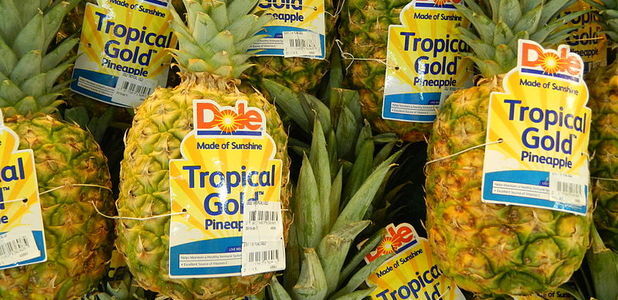Massive Report on Dole’s Take-Private Special Situation
By: SumZero Staff | Published: June 13, 2013 | Be the First to Comment

Note from the contributor: I would like to say a special thank you to Eric Li Cheung (SumZero member at ericlc@stanfordalumni.org) for his invaluable assistance with this report.
The special committee should reject the recent take-private offer from Dole’s CEO, Murdock, of $12.00/share for the business. Dole has previously highlighted $500mm ($5.56/share) of non-core assets, and there have been three consecutive weak years in the core banana business. 46% of Murdock’s takeout price consists of things that can be sold without affecting the earnings prospects of the core business in any way. The key question for Dole following the divestiture of its Asia segment has been whether a private owner or the public markets should preside over the disposition and related cash distribution of this $5.56/share.
Download the Full 50-Page DOLE Report Here
The company announced a planned buyback of $175mm on 5/9/13 with proceeds from the sale of land in Hawaii, and so it seemed that a big part of the overriding non-core asset question had been answered. Then, three weeks later on 5/28/13, Dole cancelled the buyback in favor of purchasing ships. Concurrent with the cancellation of the buyback was news that a bad strawberry harvest would cost the company $23mm in 2013E. Management appears to be using its influence and knowledge of the business to time the transaction in a manner such that they can purchase the company on the cheap.
An offer of $12.00/share, less the $5.56 of non-core assets would translate to a purchase price of $6.44/share, or 6.8x $150mm of 2013E EBITDA. If we subtract $135mm of cash from the balance sheet to account for a soon to be paid Honduran tax liability, per comments from the company, then the multiple rises to 7.5x. 7.5x is the historical average trading range for Dole since 2009, not a takeover multiple. To truly pay the 10.2x EBITDA that Murdock claims he is paying in his press release, including the non-core assets, would imply a takeout price of $16.40/share. This represents a 36.6% increase from the initial $12.00/share bid. That is not likely, given the 52-week high is $15.19 and the reality that it takes time to divest non-core assets. We do, however, now have a useful top end of the range in hand of $15-16/share.
Last time Murdock took Dole private in 2003, he bumped his offer 13.5% and when he took the company public in 2009, the IPO price was $12.50. If the past is indicative of the future, and he bumps 13.5% in this case, the new price would be $13.62, a $1.62 increase from the initial bid and $1.12 (or +9.0%) above the IPO price. An offer price of $13.62 would correspond to 8.5x EBITDA. This is not a great return per se, but in the absence of a strategic bidder, it’s probably the best we as common shareholders will be able to get. The special committee should therefore heavily shop the company.
Download the Full 50-Page DOLE Report Here
An MBO generates a 15% IRR in the range of $10.40-$11.00/share based upon consensus estimates, so we know that either (1) Murdock is willing to accept a lower return or (2) he believes the consensus estimates that drive the MBO model are not correct. Once the company goes private and a hurricane hits Central America (at some point), banana prices will rebound and the IRR in the MBO will increase. With Dole private, Murdock can de-lever at will by selling assets if the company continues to under-earn. The selling of assets could be thought of as incremental equity in the deal and theoretically lowers the IRR. Nonetheless, the main idea is that he can lower the IRR and maintain ownership, so that later he can make up for lost time with high cash flows when banana prices inevitably rebound. Dole is a business with high operating leverage – and in the case of an MBO – high financial leverage. As a result, the company would be heavily geared to benefit from an earnings recovery on the upside and safe from an earnings decline on the downside because of its ability to sell non-core assets.
Here are links to Murdock’s offer and to Dole’s response.
http://www.sec.gov/Archives/edgar/data/18169/000119312513254334/d552267dex991.htm
http://www.sec.gov/Archives/edgar/data/18169/000119312513254889/d552940dex991.htm
Because Murdock has required a Special Committee and a Majority of the Minority shareholder vote, the transaction may qualify for a more lenient standard of review should someone sue for appraisal rights in Delaware. For more on this topic, see the recent article in NYC DealBook (http://dealbook.nytimes.com/2013/06/12/the-management-buyout-path-of-less-resistance/).
In conclusion, I believe it would be in the best interest of shareholders for the committee to reject the $12.00/share bid, shop the company, wait for a bump to ~$13.62/share and then if there are no other bidders, take the deal. Shareholders can then pocket the cash or go buy Chiquita or Fresh Del Monte if they want to take a view on the potential recovery in banana prices.






Comments
Please sign in or create an account on SumZero to post a comment.